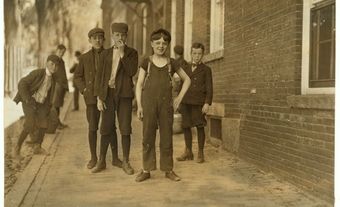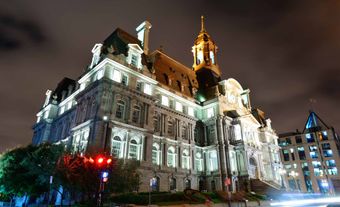Honoré Beaugrand, mayor of Montreal, journalist, writer, military officer (born 24 March 1848 in Saint-Joseph de Lanoraie, Lower Canada; died 7 October 1906 in Westmount, Quebec).

Early Life
Honoré Beaugrand was born into a wealthy, nationalistic French Canadian family. (See French Canadian Nationalism.) Of note is his father’s support of the Patriotes rebellion in 1837. (See Rebellions of 1837–1838.) In 1859, after attending school in his village, Honoré Beaugrand was sent to Collège Joliette, run by the Clerics of Saint-Viateur. In 1863, he became a novice in this religious community, but left in the winter of 1864 without taking his vows. He then settled in Montreal, where he attended meetings at the Institut canadien.
Career Outside Canada
In the summer of 1865, Honoré Beaugrand enrolled in the military school in Montreal, from which he graduated with the rank of officer second class. (See also Canadian Army.) As the American Civil War was over, in the fall of 1865, he left Canada to fight with the French army in Mexico. In March 1867, once the conflict was over, he spent several months in France.
By December 1867, Beaugrand moved to New Orleans. In June 1870, having enlisted in the US Navy, he was stationed in Florida. In 1871, he moved to Fall River, Massachusetts, where there were many people of French Canadian origin. (See Franco-Americans.) While he was very involved with this community (for example, he founded cultural societies, started a newspaper), he did not stop there. His marriage to American Eliza Walker in October 1873 enabled him to become familiar with protestant and anglophone circles. (See also Canada and the United States.) The couple had one daughter, Estelle. Honoré Beaugrand also belonged to the King Philip lodge, a Scottish masonic lodge.
Profession: Journalist
Honoré Beaugrand’s life was closely entwined with the profession of journalism. In July 1873, he launched the L’Écho du Canada weekly in Fall River. In 1875, he returned to Montreal as the managing director of the Bien public newspaper, performing similar duties at the Courrier de Montréal. Shortly thereafter, he returned to the United States to found and manage (until March 1878) the La République weekly. It was in this newspaper that he serialized the novel Jeanne la fileuse : épisode de l’émigration franco-canadienne aux États-Unis, published in 1878. (See also Franco-Americans.) In April 1878, he returned to Canada to manage various periodicals. When Le National, the newspaper of Montreal liberals, went bankrupt, he offered to create a publication to replace it. On Monday, 24 February 1879, La Patrie was published for the first time. To everyone’s surprise, the daily brought its owner financial success. (See also Newspapers.)
Mayor of Montreal
Honoré Beaugrand capitalized on his influence to enter municipal politics. (See Municipal Government.) In 1885, he was elected mayor of Montreal, where he had to deal with two unexpected crises: an epidemic of smallpox and the resistance of Métis in the West (see North-West Resistance). He was nonetheless re-elected to serve a second term with a greater majority and remained mayor until 1887.
End of Life
Honoré Beaugrand’s health was unfortunately fragile, plagued by increasingly violent asthma attacks. His doctors advised him to move to a milder climate. He spent many months each year travelling. In France, this recipient of the Legion of Honour was a frequent visitor to salons.
Wishing to end the shift in direction of the Quebec Liberal Party which had, in his eyes, become too conservative, Honoré Beaugrand ran as an independent in Saint-Louis county in the 17 June 1890 general elections, but was defeated.
He spent some of his leisure hours writing. He studied folklore and compiled special editions. One such was an edition of his collection La Chasse galerie : légendes canadiennes, published in 1900. (See Chasse-Galerie.) On 18 January 1897, he experienced a severe recurrence of his asthma, announced his permanent retirement from public life, and sold La Patrie. He died on the evening of 7 October 1906 at his home at 424 Metcalfe Avenue, in Westmount. In accordance with his wishes, his remains were cremated without a religious ceremony (much to the outrage of religious leaders).

 Share on Facebook
Share on Facebook Share on X
Share on X Share by Email
Share by Email Share on Google Classroom
Share on Google Classroom


